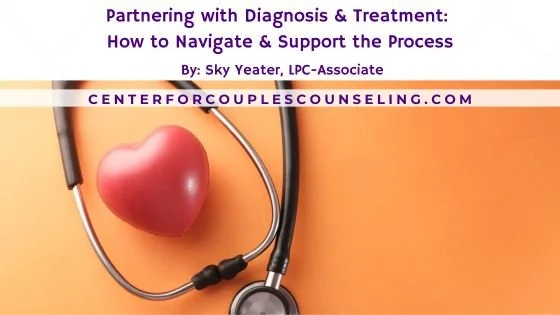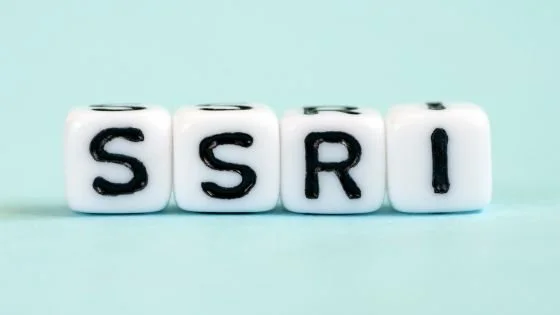Partnering with Diagnosis and Treatment: How to Navigate & Support the Process
Are you and our loved one stuck in feelings or behaviors that might best be explained by a diagnosis? Does the idea of seeking a diagnosis seem daunting? Many of the couples I work with have at least one person with at least one diagnosis, who might be on meds. Through exploring areas of disconnect, together we discover what of those might be caused by symptoms of a condition. In wanting to further support my clients beyond the realm of relational communication, I felt inspired to learn more from an expert.
I asked Dr. Jin, a psychiatrist in our referral network questions related to the process of diagnoses and how this shows up in and can be supported by our relationships.
She shared her wisdom:
1. How long does the diagnosis of (ADHD, Autism, Dyslexia/Dyscalculia, etc.) process take?
- We are only able to diagnose ADHD at our practice. It usually takes about 1-2 appts.
2. What does diagnosis entail?
- The first appt is history gathering. If history is consistent with ADHD and there's no other significant confounding factors, like notable depressive/anxiety symptoms, patients will then complete 2 standardized questionnaires (WURS and CAARS).
- We will review the results of the assessments at the 2nd appt and start medication if warranted. If ADHD is not clear based on history or there suspicion of other disorders like learning disorder, etc., I'll refer patient for more in depth psychological testing.
3. How often do you typically see clients?
- If a patient is diagnosed with ADHD and med treatment is started, follow-up appts will range from every 2-4 weeks. We require monthly appts for every patient who's on a controlled med.
4. How do clients usually feel coming in and once they have a diagnosis?
- There can be squish. Particularly for people with ADHD, whose executive functioning likely doesn’t jive with the demands of our medical systems, simply making an appointment can feel like an impossible task. Once they do, some patients struggle with the diagnosis and the idea they "need a treatment to function." Most of the patients are relieved to have a formal diagnosis and know there are effective treatments.
5. What are common struggles they have in their relationships?
- Primarily a partner’s frustrations with inattentiveness to homecare or relational requests.
6. If medication is prescribed, what is that process like and how long does it take to get the meds?
- There's an ongoing shortage of psychostimulants (Adderall, Ritalin, Vyvanse, etc.). Unfortunately, patients have to call around to several pharmacies to locate their medication.
7. How long do SSRI's take for full efficacy and what's the best way to adjust meds?
- SSRIs and all other antidepressants take 6-8 weeks for full effect. There are numerous ways to adjust antidepressants, depending on response. SSRIs and antidepressant are not used directly for ADHD but are often used in conjunction with ADHD meds to treat other conditions.
This is all really awesome information and we’re very grateful she shared with us! I hope it sheds light on the process and helps it feel more accessible for those considering getting diagnosis, testing, and treatment for various neurodiversities.
In my role as a couple’s therapist, I’m attending to the relational struggles and best practices for going through the diagnosis and treatment process as a team.
These are my tips for ways a partner can support their loved one through the diagnosis process as well as how and when to disclose diagnoses:
Education: As mentioned in my Partnering with ADHD blog, I believe this is the best first step for support. I often ask my clients how their brains operate doing discrete tasks. This tends to highlight how they track priorities, time, and what they notice in their environment. By having this conversation, we often are able to identify each of their strengths and learn how to use them more effectively. It’s natural to take for granted that other people process similarly to us, especially if they’re a close loved-one who should “know” the rhythms and expectations. Join chat groups, listen to podcasts, read recommended books! Educating yourself on the very real symptoms and experiences of neurodiversity is pivotal to being a compassionate support for your loved one and can help you figure out ways you can work effectively together to support the larger system.
Active Listening: As mentioned in our blog about creating an intentional relationship while neurodiverse, active listening is super important. Setting a timer for each person to share and reflecting back their words is invaluable to get on the same page when sharing frustrations, requests, and wins related to their diagnosis! Check your assumptions by getting curious. Create a safe space for them to share how the medication or other treatments are affecting them.
Collaborative Language: Decide between yourselves what labels fit best regarding their diagnosis. There is powerful connection in co-creating a shared language. I often recommend doing this for things that might be heavy like a diagnosis, symptom, treatment, or safe word. I invite you to make it fun and maybe silly if that helps normalize and create ease.
Patience: While you might be struggling with your loved one’s symptoms, they might be struggling equally or more with the idea of getting a diagnosis. It’s easy to create a story that they’re “dragging their feet.” When this is happening, I find a deeper more personal reason for the delay. It’s often rooted in fear of failure or shame. Again, get curious, encourage and remind rather than demand. Rather than during or right after a fight about their symptoms, try to suggest taking action when you’re both relatively calm.
Body-Double: When making the initial appointment and completing the paperwork, a reminder and relaxed presence might be really helpful for your partner to complete those tasks. It’s best you don’t do it for them. Be a companion on their journey. This is an invaluable gesture!
Respect Privacy: Discuss your loved one’s preferences about information sharing about their diagnosis and treatment. They have a right to know who knows. Some people are concerned about job security or stigma with family and friends… Be mindful with whom you share. If you need to find a welcoming space to vent, ask questions, or share concerns, join a support group or seek individual or couple’s counseling.
Seek Help: Find a couple’s therapist knowledgeable in neurodiversity who can support you on your journey. If you’re not sure how to broach it with your partner, and they genuinely identify a potential diagnosis, it is really helpful to have a caring professional normalize, explain, and help you find ways to navigate the discussion.
One gift of neurodiversity is learning the full spectrum of human experiences. This means there’s no one-size-fits-all way to support your unique partner with their unique experience. On the other side, many people don’t know what would be helpful and how to ask. Let’s work together to create more synergy! We’re here to help!
My name is Sky Yeater and I am a Licensed Professional Counselor Associate at the Center for Couples Counseling. I am an LGBTQ+ person and professional passionate about helping couples and individuals find empowerment in their lives and relationships. If you’re looking to grow with new tools and humor, call (832) 827-3288 to set up your free phone consultation. Our Center serves couples and individuals in League City and Houston, Texas and all residents of Texas online!
Interested in Meeting a Couples Therapist in League City, TX?
If you want to improve your relationship and reconnect with your partner, take action now and start being more curious about your relationship. At Center For Couples Counseling, one of our skilled couples therapists can help you and your partner navigate your challenges and rediscover the curiosity and passion that brought you together in the first place. Don't wait any longer to invest in the health and happiness of your relationship. To meet with a couples therapist follow these three simple steps:
Contact us to schedule an appointment
Meet with one of our skilled couples therapists
Begin to find the curiosity in your relationship and reconnect with your partner!
Other Services Offered at Center for Couples Counseling
At Center For Couples Counseling, our team of skilled therapists understands that your relationship may be facing different challenges. In addition to couples therapy, our Texas practice offers individual therapy, infertility counseling, postpartum anxiety and depression counseling, therapy for self-care and burnout, and therapy for perfectionism. For more about us check out our FAQs and blog!My name is Sky Yeater and I am a Licensed Professional Counselor Associate at the Center for Couples Counseling. I am an LGBTQ+ person and professional passionate about helping couples and individuals find empowerment in their lives and relationships. If you’re looking to grow with new tools and humor, call (832) 827-3288 to set up your free phone consultation. Our Center serves couples and individuals in League City and Houston, Texas and all residents of Texas online!






